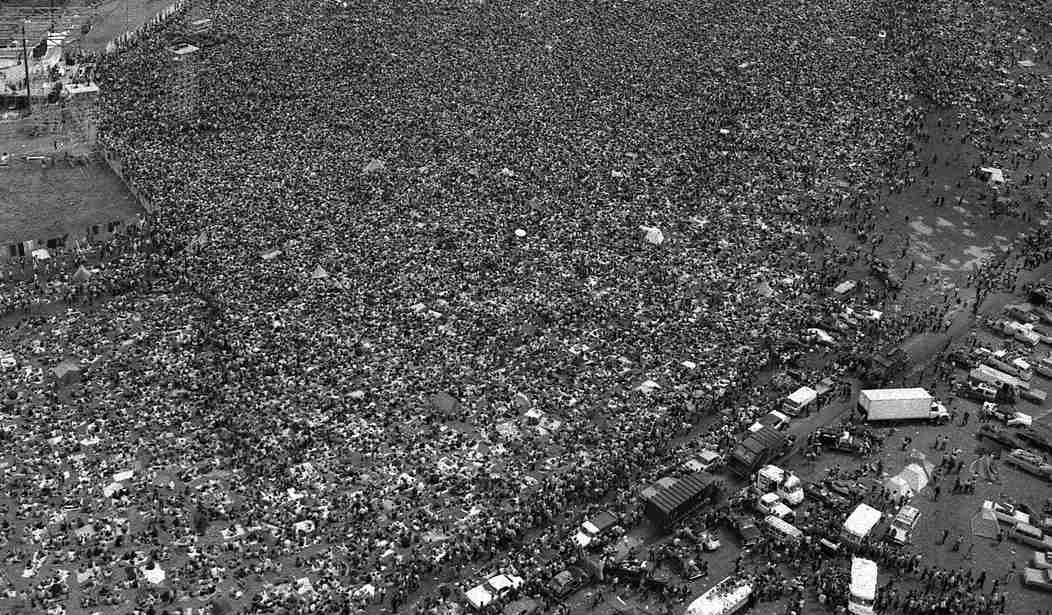There is no doubt that as a music festival, the Woodstock Music & Art Fair, held August 15-17, 1969, in Bethel, New York, was a shattering success. The list of legendary pop, rock, and soul acts was truly remarkable. There has never been such an assemblage of talent before or since.
The event Woodstock was a financial bust, however. There may have been half a million people in attendance, but few paid to get in. The film generated enough revenue, however, to pay off the 70 lawsuits filed by local farmers and the $1.7 million debt carried by the promoters.
Of course, the festival itself has become a footnote. The myths about Woodstock as a turning point in history, or an example of how mankind can live together in peace, have become cultural staples, and an important narrative for the Baby Boomer generation — except no one ever mentions the drug overdoses, bad trips, and deaths that accompanied the festival.
In many ways, the myths about Woodstock give the festival its historical significance. But a look at the reality that is the legacy of Woodstock tells a different story.
This weekend marks the 50th anniversary of the cultural phenomena and the debate still rages over its cultural and political significance.
“Everything that could go wrong went wrong. But everything went right,” said Duke Devlin, 77, who hitchhiked to Woodstock from Texas and has lived near the festival venue ever since. “We were bombarded with bliss.”
Arlene Seymour, 69, arrived for the weekend wearing the same tie-dye shirt she bought on her way to the 1969 concert. She fondly recalled sharing food with people she had just met and sleeping in the trunk of a stranger’s car to avoid the rain.
“It just wouldn’t happen like that today,” she said. “Because of the environment in the world, people would be worried to have it so loose.”
Putting Woodstock into historical perspective is difficult. The “counterculture” was right about many things. Civil rights, women’s rights, the futility of the Vietnam War — history has proved that the “spirit” of Woodstock helped change a nation.
But not always for the better. Along with the counterculture arose the drug culture, the consequence-less sex culture, and the advancement of a far-left agenda that threatens to bankrupt the nation. Cultural “freedom” has become a straitjacket, oppressing opposing opinions and blanketing the nation with a deadening cultural conformity. Our universities have become anything but bastions of free speech. Higher education has become — as opposed to free-thinking — as oppressive as any administrative tyranny imposed on hippies in the 1960s.
Irony? Of course. But also predictable. Unbridled freedom without responsibility sounded the death knell of a moral society. Morals themselves became frangible. Good and bad, right and wrong became irrelevant. With ever-shifting, ever “evolving” morals, there is no anchor, no port in a storm for people to seek refuge.
This doesn’t mean that the culture shouldn’t have changed. But the moral precepts that undergird our way of life and lay the foundation for a just society have largely disappeared. We no longer agree on these vital precepts. Because of that, we are torn apart with dim prospects for coming together again.
It wouldn’t be fair to blame all of this on hippies or baby boomers. We, all of us, are responsible. We all have the freedom to choose. Most of us have not chosen wisely.










Join the conversation as a VIP Member